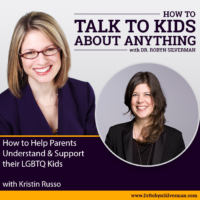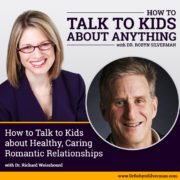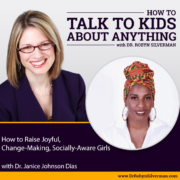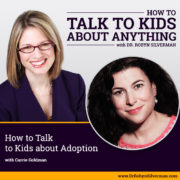“I was relapsing:” Eating Disorder Relapse & Support While Away from Home
Rebecca Tishman, our teen college blogger, has openly told our readers her story of eating disorders and recovery over the last 2 years. Her frank insight and bold discussion has helped many understand the many facets of eating disorders during the teen years and how they can be a support to others who are facing similar challenges. Today, Rebecca writes about her eating disorder relapse.
Relapse from an eating disorder is not uncommon. Studies show that 1/3 of women treated for anorexia or bulimia relapse within 9 years and 40% of patients with anorexia relapse within 1 year of being treated at an inpatient eating disorder facility. While Rebecca is in no way alone, there is no doubt that this article was likely hard for Rebecca to write. Please write in your support, comments, questions, encouraging words, and congratulations for her courage during her ongoing fight against ED either here or on my Facebook site where she’ll also be interacting with readers.
 “I was relapsing:” Eating Disorder Relapse & Support While Away from Home by our college blogger, Rebecca Tishman
“I was relapsing:” Eating Disorder Relapse & Support While Away from Home by our college blogger, Rebecca Tishman
I’ll be honest. As much as I’d like to say that I’m fully recovered from my eating disorder (ED), it looks as though ED’s still got me on my toes.
Back in May I finished my first year of college. What a feat, right? Two days later I moved to North Carolina for an internship opportunity I secured there at an artist collaborative. Things seemed to be going great at first. I did my own grocery shopping. I cooked meals everyday. I was able to clear my mind of all the stress that developed over the past year and exercised in an appropriate amount. Yes! I was staying in control of my Eating Disorder instead of the other way around.
But then it happened. I had naively let my guard down and allowed ED sneak his way back in. I was relapsing.
It was about halfway through my stay there. I somersaulted so quickly. My own admission that I was in ED’s grips again My own admission that I was in ED’s grips again forced me to choose to return home earlier than I had originally intended to so I could see my team of doctors and be closer to my parents’ support.
I remember a time when I was in treatment. One of the tasks they gave us was identifying what relapse meant to us. They asked us; what would the signs of our own relapses would look like? They then asked us to give them to our family so that they knew what our relapse would look like and what signs to look for. This exercise helped me to identify the very painful truth. It was happening and I needed to do something about it.
The signs of relapse are different for everyone. Here were some of mine:
- Disconnection: Feeling disconnected from friends and family-whether physically far away from them or standing right next to them I felt like we were in different solar systems
- Alcohol: Drinking alcohol to escape the feelings
- Food intake: Basing the amount of food intake on whether I exercised and how much I exercised
- Skipping meals: Intentionally skipping meals-while missing a meal once in awhile is not a definite sign of relapse, going into the day intending to skip meals and not making up for them at the next meal was a red flag for me
- Eating “safe” foods: rather than enjoying what I was cooking and eating, I felt like I was in control of what I was eating and drinking by returning to my “safe” foods and beverages
- Eating by myself: Not wanting to eat in front of people
- Withdrawing: Wanting to be alone all day-I was constantly afraid of being left out, ignored, not wanted, so I recoiled into myself and stayed home for days on end instead of venturing out and making friends
- Being afraid of food: Whether I ate an entire pizza or a single grape I felt like I was binging and instantly wanted to purge; in order to avoid that feeling I avoided eating (not a healthy solution!)
- Using attention-seeking behavior to speak for me: often I use my ED to speak the words I don’t know how to voice
Of course, identifying the signs of relapse is a good first step, but it takes more than that – one then has to change those behaviors.
Here are some of the steps I’ve taken to change my relapse behaviors:
- Returning to my original nutritionist: I’ve trusted her opinion for almost four years so having her set up a meal plan and give me permission to eat gave me back some control and helped me feel like all of those foods were now “safe” foods
- Ridding my wardrobe of “skinny” clothes: I no longer want to torture myself with the reminder of the body I had when I was very sick so I got rid of all the clothes that do not fit or that I have had since before I went to treatment
- Recommitting to recovery every morning: it’s tough but when I wake up I try to tell myself “today I am committing to a better life which one day will be ED free”
- Having an open dialogue with my team and my family: They can’t possibly help me if they don’t know what is going on so I have to remind myself to be honest with them.
- Making a plan to move forward: I’ve decided to come home once a month so that I can see my parents and my doctors and can try to be that much more connected to them all
I’m trying to learn from each slip-up in my recovery in order to avoid doing the same thing again. In doing so I learned how important it is to identify what is truly my own behavior and what is an ED behavior, what ED behaviors still exist after all this time, and what new ones are starting to crop up. Once I can identify them for myself I’m that much closer to changing the behavior and ultimately being truly recovered. Today that seems impossible but tomorrow it could be a reality if I continue to diligently call my behaviors into question.
Thank you, Rebecca, for your bravery and your honesty. We are rooting for you every step of the way. Readers; please leave your comments here or on my facebook site and Rebecca will surely read and respond either place.

Some other articles by Rebecca Tishman:
Is Vegetarianism feeding some girls’ eating disorders? HERE
Speaking out against Fat Talk while Recovering HERE
High School’s Helping Kids Down the Path of Eating Disorders









